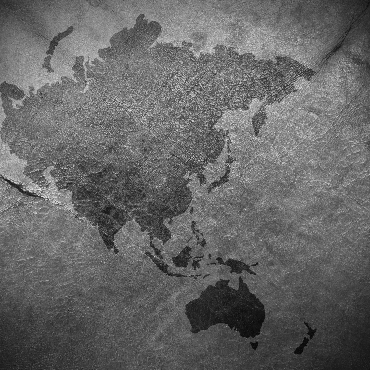IRAN'S CHABAHAR PORT TAKES CENTER STAGE
At a widely attended conference on regional connectivity in Uzbekistan last month, Indian External Affairs Minister S. Jaishankar pushed hard for multilateral support to develop Iran's Chabahar Port as a regional trade node. The project is a microcosm of crosscutting interests and threats, from India-Pakistan competition and New Delhi's suspicions of China's Belt and Road Initiative (BRI) to Uzbekistan's economic interests in - and the political uncertainty around - Afghanistan. For India's part, longstanding tensions with Pakistan necessitate an alternative commercial route to Central Asia. At New Delhi's insistence, Washington granted a sanctions carveout for Chabahar in 2020, as the U.S. would prefer Afghanistan to rely on humanitarian and economic assistance from India instead of China. At the conference, Jaishankar echoed these concerns with a thinly veiled swipe at China's BRI: "Connectivity efforts... should promote economic activity and not create debt burdens."
Meanwhile, Uzbekistan, a doubly landlocked country, seems content to cooperate with all parties - so long as it secures access to the Indian Ocean. Complicating all these plans, however, is the mounting political uncertainty in Afghanistan. In light of America's withdrawal, the militant Taliban movement is stepping up military operations and has reportedly seized border checkpoints along the Afghan borders with Iran, Tajikistan, and Uzbekistan. (The Hindu, July 12, 2021; The Print, July 16, 2021; The Hindu, July 16, 2021; East Asia Forum, July 31, 2021)
DUTERTE DROPS OPPOSITION TO VFA
In late July, Philippine President Rodrigo Duterte formally reversed his opposition to his country's Visiting Forces Agreement (VFA) with the United States. Since 1998, this pact has allowed thousands of U.S. troops to base in the Philippines, and underscored the longstanding alliance between Washington and Manila. In response to condemnation from American lawmakers last year and a high-profile visa rescission, Duterte threatened to cancel the VFA. Since then, however, he has extended the VFA's expiration date three times - while also contending with growing Chinese adventurism in disputed territories and waters in the South China Sea. Overshadowing these geopolitical factors is Duterte's domestic political future. The controversial president's term in office is expiring soon, but he appears in no hurry to leave the political stage, and has expressed interest in running as a vice presidential candidate for his party, the PDP-Laban. (Reuters, July 29, 2021; Wall Street Journal, July 30, 2021)
BURMESE JUNTA EXTENDS STATE OF EMERGENCY
Burma's junta leader and self-proclaimed prime minister, Min Aung Hlaing, has extended the national state of emergency, citing the COVID-19 pandemic and ongoing nationwide unrest. The decision comes six months after the Tatmadaw, Burma's military, carried out a coup and usurped power from elected officials. Initially, the Tatmadaw suggested the state of emergency would last one year, but Min Aung Hlaing's latest announcement portends military control until August of 2023. The junta's crackdown on popular protests has been swift and ongoing, resulting in the deaths of nearly a thousand people since February 1st. Simultaneously, Burma's public health infrastructure is struggling to deal with a surge of COVID-19 infections, particularly in light of medical workers being arrested or fired. (Associated Press, August 1, 2021; BBC, August 1, 2021)
INDIAN STATES IN BORDER STAREDOWN
Tensions along the Sino-Indian border have persisted for over a year now, but two states within India recently found themselves in a renewed border crisis of their own. Officials in Assam and Mizoram, two of India's easternmost states, are accusing each other of encroaching on one another's territory. The dispute turned violent in late July, when Mizoram police officers killed six Assam law enforcement officials in a firefight. In response, Assam announced plans to deploy 4,000 commandos to the border. Once unified, Assam and Mizoram split in 1972, and Mizoram became an official state in 1987. Border issues through forested regions have persisted since then, and are rooted in India's colonial history. Several British documents demarcated the border between Assam and Mizoram, but Mizoram leaders reject their validity. (Straits Times, July 27, 2021; NDTV, July 31, 2021)
FINAL ATTEMPT TO SAVE BRI PROJECT IN MALAYSIA FALTERS
In January, Malaysia canceled the East Coast Rail Link, a high-profile Chinese-funded railroad, for the second time. Last month, in the latest chapter of the troubled deal, a rail link connected to the project collapsed as well. Initially, Malaysia envisioned the 640-mile project as a linkage between its wealthy peninsular west coast and its poorer eastern region. Beijing readily inked a deal in 2017 under the auspices of its Belt and Road Initiative (BRI) but corruption concerns quickly arose, in light of then-Malaysian Prime Minister Najib Razak's use of a slush fund to siphon off millions of dollars from the project. Malaysian politicians also worried about the project's impact on national debt, with the subsequent prime minister publicly criticizing the project as "unfair." China agreed to slash costs in 2019, when both governments agreed to restart the railroad, but financial concerns – intensified by COVID-19 – have persisted for Malaysian officials. (New York Times, April 12, 2019; Global Construction Review, January 5, 2021; Straits Times, July 15, 2021; Associated Press, July 25, 2021)
Want these sent to your inbox?
Subscribe
